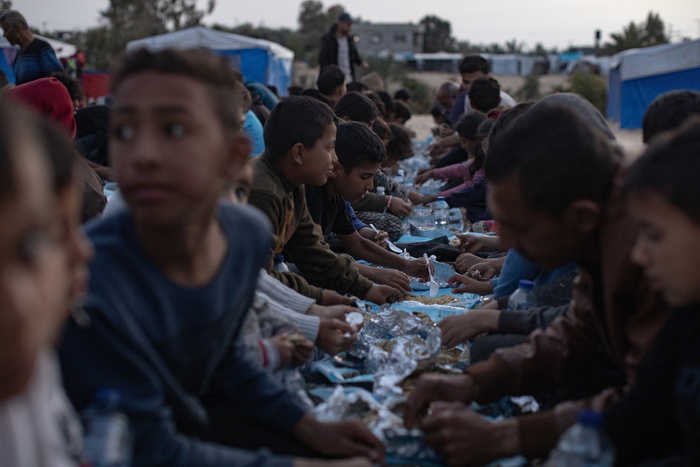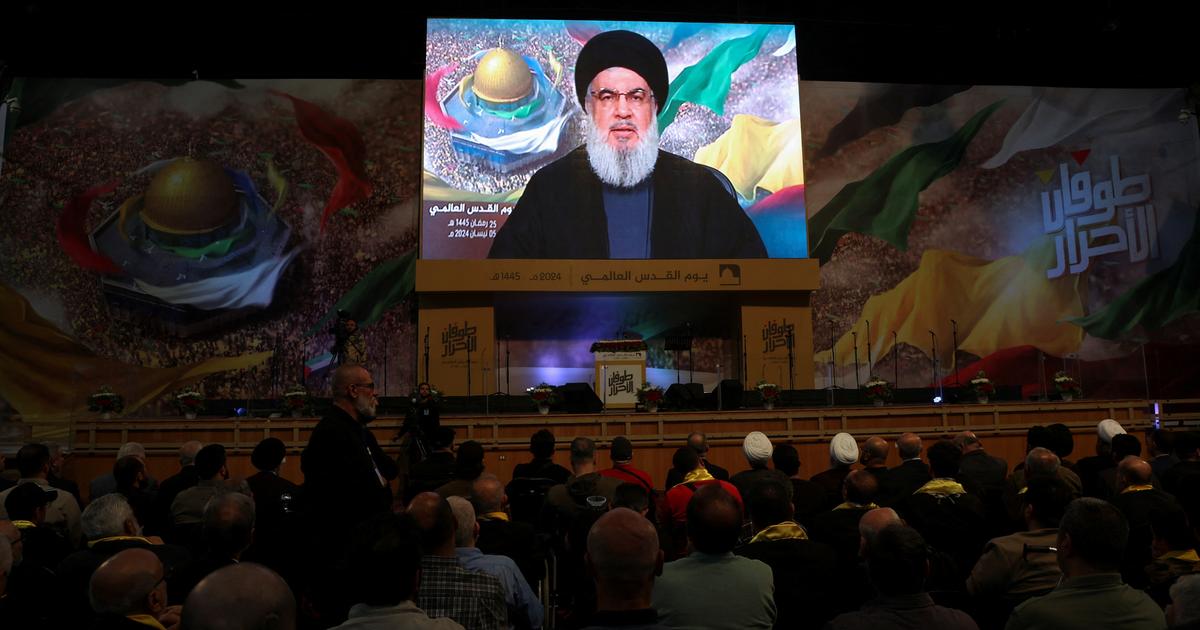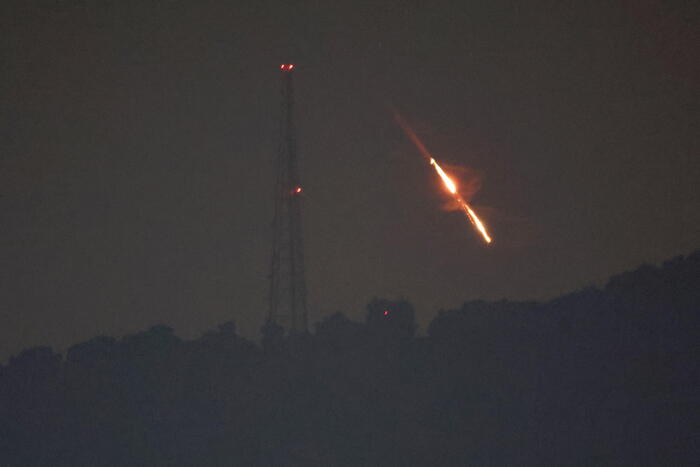Patrick Kingsley
08/05/2021 10:53
Clarín.com
The New York Times International Weekly
Updated 08/05/2021 10:53
JERUSALEM - Militants in southern Lebanon fired rockets at Israel on Wednesday for the second time in two weeks, prompting the Israeli army to respond first with artillery fire and then airstrikes, in a new outbreak after days of tension across the region.
No faction immediately claimed responsibility for the rocket fire, but similar attacks in May and July were attributed to
Palestinian militants
based in Lebanon.
There were no injuries on either side.
Israeli self-propelled howitzers take position in Kiryat Shmona following rocket fire from Lebanon on Wednesday.
Photo Jalaa Marey / Agence France-Presse - Getty Images
The skirmish was a reminder of the hostility along the border, where the Israeli army has for years been locked in a
clash with Hezbollah
, an Iranian-backed Lebanese Shiite military and political faction that dominates southern Lebanon.
Hezbollah does not recognize Israeli sovereignty and is considered a terrorist group by dozens of countries, including Israel and the United States.
Early in the morning on Thursday, the Israeli army said its planes struck what it described as rocket launch sites in southern Lebanon, Reuters reported.
Hezbollah's Al-Manar television said Israeli warplanes had carried out two sorties outside the Lebanese city of Mahmudiya.
Tensions between Israel and Iran-linked groups are
higher
than usual due to expectations that Israel may soon
retaliate
for last week's attack on an Israel-linked merchant ship in the Indian Ocean.
Israel blamed that attack on Iran.
It was the latest in a years-long shadow war between Israel and Iran and their proxies that has involved regular titling attacks that normally attract little international attention.
But the
unusual
nature
of last week's episode - a drone attack on a civilian ship - has raised concerns that Israel may respond with force, either by targeting Iran itself or its proxies like Hezbollah.
Tensions escalated further Tuesday, when an Emirati merchant ship was briefly boarded by Iranian gunmen off the coast of the United Arab Emirates, according to crew recordings obtained by
The Associated Press.
The gunmen are believed to be Iranian commandos, according to a senior Western official, who requested anonymity so that he could speak more freely about the content of the intelligence reports.
Iran has
denied
being involved in either event.
Israel is trying to use these recent events to convince US and European allies that it is fruitless to continue nuclear negotiations with the Iranian government.
A U.S.-led alliance is trying to persuade Iran to re-commit to a 2015 agreement, known as the
Joint Comprehensive Plan of Action
, or JCPOA, in which it pledged to curb its nuclear program in exchange for relief. of the sanctions.
But Israeli officials view that agreement as ineffective and argue that its allies must force Iran to end its nuclear ambitions and the military activities of its proxies in the region by increasing economic sanctions and military action.
In a speech to soldiers stationed near the Lebanese border on Tuesday, Israel's Prime Minister
Naftali Bennett
said: "Sitting quietly in Tehran and setting fire to the entire Middle East from there, that's over. We are acting to enlist the world, but at the same time we also know how to
act alone.
Iran knows the price we charge when someone threatens our security. "
Iran competes for regional influence with Israel, Saudi Arabia and the United Arab Emirates, both with direct attacks and with support for militias and governments in
Iraq, Yemen, Lebanon, Syria and Gaza.
In a speech on Wednesday, Israel's Defense Minister
Benny Gantz
said: "Iran has violated all the guidelines set out in the JCPOA and is only about 10 weeks away from acquiring the weapons-grade materials needed for a nuclear weapon.
Now is the time for events, words are not enough.
It is the moment of diplomatic, economic and even military events;
otherwise the attacks will continue. "
There is no international consensus on the
exact time
Iran takes to develop a nuclear weapon.
Estimates range from
several months to a few years.
Israel is believed to have developed nuclear weapons in the 1960s, although the government has never confirmed this.
The dynamics on the Israel-Lebanon border are considered especially delicate due to the deep economic turmoil in Lebanon that has destabilized the country.
Wednesday's skirmish coincided with Lebanon's commemorations of the anniversary of an explosion in the port of Beirut last year that devastated much of the city and traumatized many of its residents.
The incompetence and negligence of the government was blamed in part.
Israel occupied parts of southern Lebanon from 1982 to 2000, trying to prevent Palestinian militants from staying there.
War broke out again in 2006, primarily with Hezbollah, leading to another brief Israeli ground invasion.
Gabby Sobelman contributed reporting from Rehovot, Israel, and Eric Schmitt from Washington.
c.2021 The New York Times Company
Look also
After years of calm, the Israeli-Palestinian conflict broke out. Why now?
The developing world is a powder keg












/cloudfront-eu-central-1.images.arcpublishing.com/prisa/KMEYMJKESBAZBE4MRBAM4TGHIQ.jpg)


